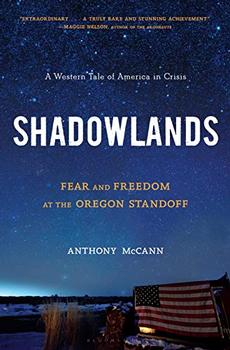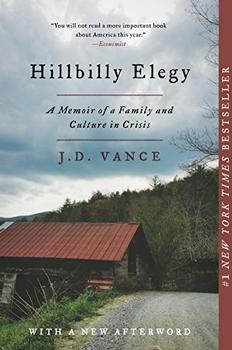Summary | Excerpt | Reviews | Beyond the book | Read-Alikes | Genres & Themes | Author Bio

Anger and Mourning on the American Right
by Arlie Russell HochschildArlie Russell Hochschild's dive into the heart of Tea Party America is as good a glimpse of right wing philosophy as an East Coast born, Berkeley educated sociologist can offer. Begun years before Donald Trump appeared as a serious contender for US President, her research focused on (as she calls it) a "keyhole issue": the environment. Since Louisiana is home to both the worst environmental pollution in the country and a high percentage of right wing citizens, she decided to base her study there. And since right-leaning voters tend to eschew governmental programs that would help prevent pollution – of the kind that has cost these Louisianans their homes, jobs, health and family members – she saw a nearly unfathomable paradox.
Hochschild did her homework. Not only had she read just about every credible book on the Tea Party and the American Right, her book is heavily annotated and footnoted, cross referencing every fact and statistic. There is no fake news here. She felt she had a handle on the politics. However what she lacked was how people "feel."
While all these works greatly helped me, I found one thing missing in them all – a full understanding of emotion in politics. What, I wanted to know, do people want to feel, what do they think they should or shouldn't feel, and what do they feel about a range of issues? When we listen to a political leader, we don't simply hear words; we listen predisposed to want to feel certain things. Some broad emotional ideals are shared across the political spectrum but others are not.
So she donned her waders and strode right into the bayou, so to speak. Like any self-respecting sociologist she knew that in order to get people to open up she needed an entrée. That came in the form of a friend of a friend, which lead to more introductions and more kitchen table conversations, where she met and became friends with several remarkable people. Given the amount of hardship most of her interviewees have suffered in the name of bringing jobs to Louisiana they are incredibly tolerant. Survivors. At any cost. Their environment, their landscape, their livelihoods? Those haven't survived nearly as well.
As Hochschild describes the horrors that petro-chemical toxic waste has wreaked upon Louisiana's glorious (now dead) cypress trees, on its joyously noisy (now silent) bullfrog-inhabited swamps, on its once treasured fish and seafood for both trade and leisure, it's enough to bring you to tears. People she interviewed worked jobs that not only killed wildlife at the time, but poisoned the waterways for generations to come. One man, an employee of PPG (Pittsburg Paint and Glass), dumped toxic waste into the river. He had to perform his task under cover of darkness – earning overtime wages – as it was illegal. Then, after an accidental chemical spill burned off all his clothes, causing him to take time off for recovery, he was summarily fired for "absenteeism" even though he'd returned to work early against the advice of his doctor. Indeed, the residents of what is now sardonically called "Cancer Alley" have tolerated this and much worse at the unbelievably careless hands of the petro-chemical industry. But that is not their only abuser.
Although oil provides less than 15% of the jobs in Louisiana, it lines a much greater percentage of the pockets of its politicians. Politicians, from governors to state legislators to mayors to Congresspersons, give canned speeches celebrating Louisiana's formerly rich environment. Great weekend festivals commemorate its used-to-be wonderful fishing and hunting, its formerly-splendid bayous, its communities that have been sacrificed at the altar of heavy industry. News media – not just the usual suspects, but respected New Orleans media – slip slide over the grislier environmental outcomes of bad petro-chemical behavior. And perhaps worst of all, bureaucrats tasked with watch-dogging environmental issues have looked the other way or loosened regulations in order to accommodate industry.
So how, Hochschild asks, do these intelligent, caring people tolerate such abuse? From their combined personal stories she gleans a parable – what she calls their "deep story" – that goes like this: these are people who believe in the great American Dream. They obey the rules, and stand in line waiting their turn at it. They're so close they can almost see it. But since the 1960s, interlopers have been taking cuts in the line in front of them. It seems as though left-leaning government has been allowing minorities, immigrants, and LGBTQ people to cut ahead of those who gave up everything (health, home, even loved ones) for the Dream. And they hate it.
Bitterness is woven throughout each of these Louisianans' stories because, as they see it, government has conspired with others (also included are non-Christians and secularists) against them. Big business has done its part, stepped up to give them jobs, a chance to work hard to retire one day with the American Dream tucked under their arm. But left-leaning government and those interlopers want to drive big business (jobs) out, want to take money (taxes) from big business that could go to their salaries, and then give that money away to non-workers, non-Christians, foreigners.
As Hochschild portrays them, these Tea Party sympathizers' political views are rooted in their fundamental Christian philosophy, which, as Nietzsche defines it, is hostile to this life while striving for another, a better life, later or beyond. They want "only to look 'up' to the elite [greedy corporations]. What was wrong with aspiring high? That was the bigger virtue, they thought." They want a life where being moral, faithful and hardworking will eventually win one's just rewards. Indeed, they are grateful for the support of their God/church as they've had to helplessly watch loved ones get sick and die from toxic chemical pollution. "The whole context of Louisiana – its companies, its government, its church and media – reinforces that deep story."
As with any sociological study, it is a given that those being studied are changed by the very process of being observed, and one wonders if (and how much) their stories were nuanced so as not to offend Hochschild. On the other hand, I don't think anyone could offer a better, more empathetic view of the lives and culture of these Tea Party sympathizers who would ultimately become Trump voters. Strangers in Their Own Land: Anger and Mourning on the American Right is thought provoking and well written, with a novelist's ear for dialogue and story telling.
![]() This review was originally published in The BookBrowse Review in February 2017, and has been updated for the
February 2018 edition.
Click here to go to this issue.
This review was originally published in The BookBrowse Review in February 2017, and has been updated for the
February 2018 edition.
Click here to go to this issue.

If you liked Strangers in Their Own Land, try these:

by Anthony McCann
Published 2019
An "epic exploration" of the 2016 right-wing Oregon Occupation - "an excellent microcosm by which we might better understand our difficult national history and distressing political moment" (Maggie Nelson).

by J.D. Vance
Published 2018
#1 New York Times Bestseller, named by the Times as one of the "6 books to help understand Trump's win"
Discovery consists of seeing what everybody has seen and thinking what nobody has thought.
Click Here to find out who said this, as well as discovering other famous literary quotes!
Your guide toexceptional books
BookBrowse seeks out and recommends the best in contemporary fiction and nonfiction—books that not only engage and entertain but also deepen our understanding of ourselves and the world around us.